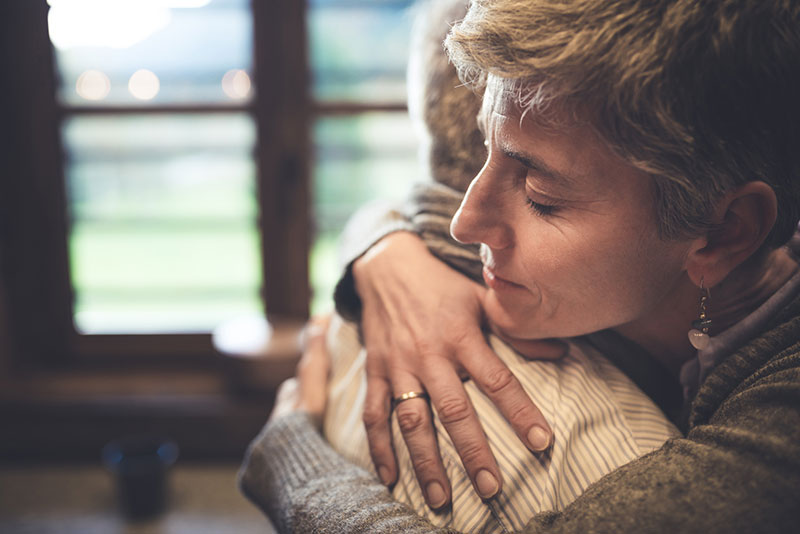
Learn practical steps and know what to do when a parent dies.
Knowing what to do when a parent dies is hard. In addition to navigating grief, there are a variety of administrative tasks that must be handled in a timely manner.
To help alleviate some of the stress during this period of time, our care professionals have put together the following helpful timeline so you will know what personal and legal details need to be addressed when someone you love passes away.
First Steps: Immediately
- Obtain a declaration of death. Depending on the person’s location when he or she passed, this may be given by hospital staff, a hospice nurse, or the staff in a long-term care facility. If you’re caring for the person in your own home without having the support of medical professionals, call 911. EMTs will provide transportation to the hospital for a legal pronouncement of death.
- Tell friends and family. There are several ways to make this happen, according to what’s most preferable for you. You might want to personally contact each individual through a phone call, email, or face-to-face visit. You may want to ask for help, designating others to contact a particular group of people (for example faith community members, friends from organizations the person was involved in, neighbors, etc.) to aid in spreading the news. Or you may want to post on social media, allowing you to make one statement that reaches everyone in the person’s circle of contacts.
- Meet with immediate family to go over funeral plans. If the senior had prepaid/preplanned final arrangements, review those plans with immediate family. If not, start the conversation on preliminary information: which funeral home you’d like to use, the available budget, and any high-level particulars you want to be sure to include.
Next Steps: Within 2 or 3 Days of Passing
- Make funeral arrangements. Aided by the insight from your initial family meeting, meet with funeral home staff to sort out the particulars:
- Will the individual be cremated or buried?
- What kind of casket or urn will you want?
- Where will the service take place?
- Who will write the obituary? Serve as pallbearers? Speak at the service? Handle thank-you notes? Arrange for a post-funeral gathering?
- Make sure the home and any valuables are safe and secure. Lock up any cash, jewelry, and other precious belongings, as well as the person’s home and vehicle. Also, if the person had any pets, choose who is going to take over ownership – ensuring that they receive plenty of care and attention, as they will be affected by the loss and adjustments too.
- Forward mail. The post office can set up a forwarding order so that the individual’s mail will be rerouted to the appropriate person dealing with their affairs. The designated person will also want to keep track of mail to end subscriptions and services, deal with any bills, etc.
Final Steps: A Couple of Weeks After Passing
- Pull together paperwork. Ask for ten certified copies of the death certificate, which will be necessary to close bank accounts, file insurance claims, and more. The funeral home can help you with this, or you can get them yourself from the state vital records office. You will also need to locate the person’s will and figure out who the executor is.
- Talk with an attorney and CPA. An attorney, chosen by the executor, will ease the job of resolving the estate and distributing assets. A CPA can help with filing the last tax return on the person’s behalf.
- Alert other agencies. The funeral home should speak to the Social Security Administration, but you’ll want to confirm this. Additionally, if the person had a life insurance plan, this is the time to file a claim. Talk to the senior’s bank(s), stockbrokers, and financial advisers to ascertain the beneficiary of the accounts and provide a copy of the death certificate. You will also need to close any credit card accounts and get in touch with the DMV to cancel their driver’s license.
When a parent dies, there is often a surviving spouse who needs care and support. Anthem Home Care, an award-winning provider of home care assistance in Portland, TX and the nearby areas, is here to help. Our care team can prepare nutritious meals and snacks, provide friendly companionship to reduce loneliness, assist with bathing, dressing, and much more. Let us help so that you can focus on the administrative details following a loved one’s passing. Contact us at 361-643-2323 to find out more about our services.
